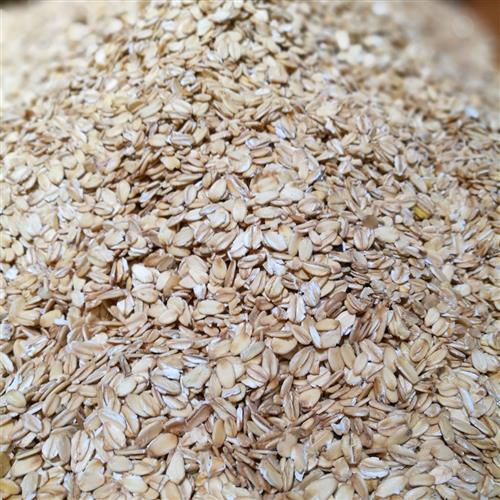Can infants and young children eat whole grains? Some people think that coarse grains can provide more nutrition, and some people think that too small children are not suitable for eating coarse grains. In fact, the answer is not absolute.
Coarse grains rich in crude fiber are beneficial to people of all ages, can help digestion and enhance gastrointestinal function. In the daily diet, the only way to eat fine, coarse-grained babies is to not have the opportunity to absorb the rich nutrients provided by coarse grains. Second, because of the lack of plant fibers, it is easy to constipate. Eating whole grains can also prevent pediatric obesity, diabetes, osteoporosis, and the necessary chewing action when eating whole grains. It can not only promote the development of masticatory muscles and gums, but also reduce the residue of food residues and prevent tooth decay.

When eating crude fiber foods, it must be swallowed after repeated chewing. This chewing process is conducive to the development of teeth and the prevention of dental diseases. Regularly chewing foods of suitable hardness, elasticity, and cellulose content are particularly beneficial to the health of the teeth and gingival muscle tissue. In this way, the food residue attached to the surface of the teeth and the gums can be cleaned with the rubbing of saliva and mouth and tongue muscles caused by chewing, and the gingiva muscles can be massaged to increase blood circulation and enhance the health of the muscle tissue. In addition, the development of the sacrum is affected by muscles such as chewing, swallowing, and vocalization. Chewing is essential for the development of the sacrum during the child's vigorous development. Lack of proper chewing during early childhood is one of the causes of tibial dysplasia and irregularly arranged teeth.
Eating more crude fiber foods is especially important before the development of young children's permanent teeth. In the period of changing teeth, you can give the child more hard foods like sugar cane and spiced beans, and educate the children to chew on both sides of the molars. Do not use only one side to chew, otherwise it will cause uneven teeth and face asymmetry. The phenomenon of stunting affects the child's appearance, language, breathing, and chewing. In addition, let the children eat more radish, cabbage, celery, leeks and other crude fiber vegetables.
"Coarse grains" mainly includes products such as corn, sorghum, millet, buckwheat, oats, buckwheat, potatoes and various kinds of beans. Due to poor taste of coarse grains, children who are accustomed to fine taste foods will be more troublesome to accept. They can often eat cornmeal porridge, millet porridge, millet porridge, brown rice, and mixed noodles, which will not only increase the appetite of children. , And can increase nutrition, help children grow and develop.
Baby eats coarse grains best after 1 year old. 4 to 6 months of the baby just started to add food supplements, the digestive system is not adapted to high-fiber foods, gastrointestinal function is poor, often diarrhea baby temporarily do not eat whole grains.
To eat coarse grains for your baby, one must pay attention to the thickness. When making steamed buns, add corn flour or soy flour in flour; make corn flour into corn paste, tortillas, etc.; combine porridge with millet and rice; make pulp with oats and mung beans, red beans, mix in rice flour for food supplement . The second is to make meticulous work. For example, adding oatmeal to water, adding milk, raisins, apples, heated to about 70 °C made of fruit oat bran. After the age of two or three, you can grind coarse grains and mixed beans into flour, mix them with wheat flour in a ratio of 1:3, and steam the rolls together with sesame or walnut powder.
Xiao Bian reminded: Do not overfeed your child with coarse grains, 1 to 2 times per week, gradually increase to 2 or 4 times a week. Need to be reminded that some things easy to make into mud, such as sweet potatoes, potatoes, pumpkins, etc. are also coarse grains, so it is not appropriate to eat every day; there is careful selection of coarse grains, we must first according to the baby's long teeth to add appropriate Coarse grains. At the same time, the baby should also be given an appropriate amount of “fine grainâ€, ie, rice, noodles, etc., in order to achieve a balanced diet.
Silk thread: Advantages: easy to sterilize, easy to use, and knotted firmly; mainly used for suturing skin, subcutaneous or internal knot tissue, the muscle layer, etc. The surface of the newly developed silk thread is coated with beeswax, which makes the operation more convenient, removes the protein in the silk that is likely to cause foreign body reactions, and strengthens its strength, making it more suitable for current surgical operations.
Nylon thread sutures: advantages: high tensile strength, little tissue reaction after implantation in the body, and excellent elasticity; widely used in anastomosis of tiny nerves, blood vessels, lymphatic vessels, etc.; severed finger (limb) replantation; Maxillofacial, burn plastic reconstruction; deformity correction and other clinical applications of microsurgery, dentistry, hand surgery, and plastic surgery.
Non Absorbable Sutures, sterile surgical sutures, surgical silk suture
Ningbo Siny Medical Technology Co., Ltd , https://www.sinymedical.com
